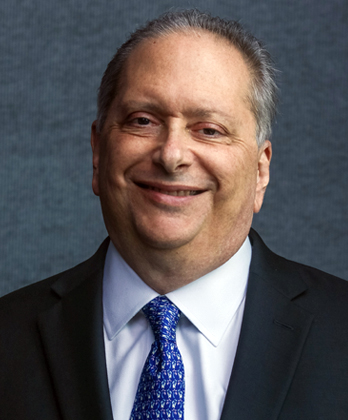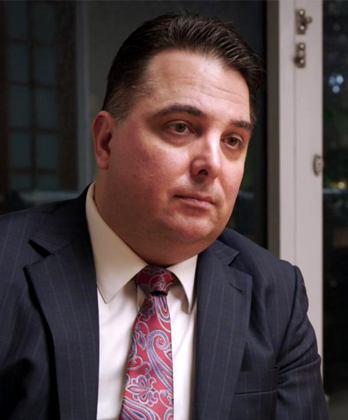- Details
- Category: Industry News
 Business Travel Still Lagging Leisure: The road to the travel industry’s recovery has been a challenging one, fraught with airline cancelations attributed to hiring challenges, higher fuel prices, and weather issues, but leisure travel is nearing a full recovery over 2020 numbers. According to a new case study conducted by the Peterson Institute for International Economics, business travel destinations aren’t seeing the same increase in travel demand as leisure—and it’s taking a toll on international business. From the study: “The rebound in business destinations consistently trails others. This is concerning because face-to-face interactions are known to be necessary to foster business dynamics, and many such interactions cannot be substituted with videoconferencing. Another crucial finding is that China's zero-COVID policy has isolated the country from international air traffic in a dramatic and potentially long-lasting way. International traffic there has remained nearly nonexistent since March 2020.”
Business Travel Still Lagging Leisure: The road to the travel industry’s recovery has been a challenging one, fraught with airline cancelations attributed to hiring challenges, higher fuel prices, and weather issues, but leisure travel is nearing a full recovery over 2020 numbers. According to a new case study conducted by the Peterson Institute for International Economics, business travel destinations aren’t seeing the same increase in travel demand as leisure—and it’s taking a toll on international business. From the study: “The rebound in business destinations consistently trails others. This is concerning because face-to-face interactions are known to be necessary to foster business dynamics, and many such interactions cannot be substituted with videoconferencing. Another crucial finding is that China's zero-COVID policy has isolated the country from international air traffic in a dramatic and potentially long-lasting way. International traffic there has remained nearly nonexistent since March 2020.”
Although corporate employees are ready to get back to their robust travel agendas, according to recent Global Business Travel Association polls, corporations are continuing to reduce spending on non-essential meetings in favor of videoconferencing and phone calls. That’s not to say that the sector hasn’t seen a healthy recovery. Estimates from aviation data company Arc put business travel recovery at about 70 percent of pre-pandemic numbers, and some of the one-on-one meetings are instead being replaced by larger conferences/trade shows and executive retreats.
Sources: GBTA, Peterson Institute for International Economics, Marketplace.org
Strong Hiring Continues: What recession? Prices may be higher everywhere, and the economic growth is cooling considerably if you believe the GDP numbers from Q1 and Q2 2022, but hiring continues to defy economists’ predictions. Besting the anticipated 258,000 jobs by more than double, employers added a whopping 528,000 jobs to the payroll last month, as reported by Bureau of Labor Statistics (BLS) on August 5. The important leisure & hospitality sector added around 96,000 jobs, although it struggles to match its pre-pandemic employment levels (off by about 1.2 million jobs, according to BLS). It’s also the best jobs report since February 2022, indicating that employment is back to 2020 numbers.
Source: BLS
Small Business Confidence Ticks Up, But Ambivalence Remains: According to the latest NFIB Small Business Optimism Index report (July 2022), small business confidence rose from 89.6 to 89.9 in July, a slight increase that is still below its average of 98 over the past 49 years (Index value is based on 1986=100). The organization responsible for the report, National Federation of Independent Business (NFIB), noted that while inflation and prices for goods continue to remain high, sales were still in an upward trend. Chief among the conditions for uncertainty were the rates of inflation and the ability to find qualified staff.
Source: NFIB
[08.09.22]
- Details
- Category: Industry News
 Ira Goldstein of The Black Car Fund
Ira Goldstein of The Black Car Fund
City & State, a weekly publication dedicated to the politics and policies of those who move New York, recently named Ira Goldstein (#84) of The Black Car Fund (BCF) and Matt Daus (#86) of Windels Marx and the International Association of Transportation Regulators (IATR) to its Transportation Power 100 list.
Published in the August 8, 2022, issue, the list highlights those who are shaping current and future policies surrounding transportation in the Empire State, which includes everything from taxis to scooters. The list also included recently named New York City Taxi & Limousine Commission Chair David Do (#19), who is now leading the city’s taxi and for-hire vehicle fleets.
 Matt Daus of Windels Marx
Matt Daus of Windels Marx
Goldstein is the longtime executive director of BCF, which oversees workers’ compensation and offers safety programs for more than 70,000 independent drivers in the New York metropolitan area. Under his leadership, Goldstein has implemented programs to streamline workers’ compensation, increase driver safety, and expand no-cost health and wellness benefits to drivers. BCF also offers accident support and legal assistance to its members. During the pandemic, the BCF also distributed masks and other personal protective equipment to drivers.
Daus is the founder and chair of Windels Marx’s Transportation Practice Group and was the former commissioner and chairman of the Taxi & Limousine Commission. Since 2009, he has served as president of IATR, a nonprofit educational and advocacy organization composed of government transportation commissioners and regulators from around the world. Daus is a regular in the pages of Chauffeur Driven as a contributing writer, as well as a speaker at CD/NLA events.
The entire list can be found here.
Congrats to all those named to the list!
[08.09.22]
- Details
- Category: Industry News
Are supply chain issues finally lessening the stranglehold on the vehicle market? Ford Motor Company is reporting that last month’s sales grew by 36.6, and is the only major automaker to produce sales gains for a second month in a row, according to data released from the company. Additionally, sister company and luxury brand Lincoln bested sales for the month, posting an increase of 68.3 percent over July 2021.

Ford’s gains have been bolstered by strong sales of electric vehicles (EVs), it’s best-selling F-Series truck, and high-end large SUVs. Thanks to a surge in EV sales in July—driven by the F-150 Lightning, E-Transit work van, and the Mustang Mach-E—Ford grew more than three times the rate of the overall EV segment in July, although it still has a long way to go to catch up with giants Tesla and Chinese automaker BYD. Hybrid vehicles sales were also robust, making Ford the second-largest seller of hybrid vehicles (Toyota continues to claim first).
 Ford Blue Vice President Sales, Distribution & Trucks Andrew Frick
Ford Blue Vice President Sales, Distribution & Trucks Andrew Frick
The Lincoln brand, which is now dominated by SUVs, had a record sales month in July with nearly 7,000 vehicles sold. According to the numbers, Navigator sales were up 32 percent while the smaller Aviator—and a new favorite in our industry—was up 71 percent. It’s smallest SUV, the Corsair, saw a threefold increase in sales compared to this time last year.
“Ford was America’s best-selling brand in July powered by strong demand across our lineup. Our overall sales rose 37 percent in July and electric vehicle sales grew at three time the rate of the EV segment. Ford SUVs were up 70 percent, while E-Transit leads the electric van space with 95 percent of the electric van segment,” says Andrew Frick, vice president, Sales, Distribution & Trucks for Ford Blue.
You can read more about the Ford and Lincoln vehicle lineup in our cover story from January 2022 here.
Visit ford.com and lincoln.com for more information.
[08.09.22]

